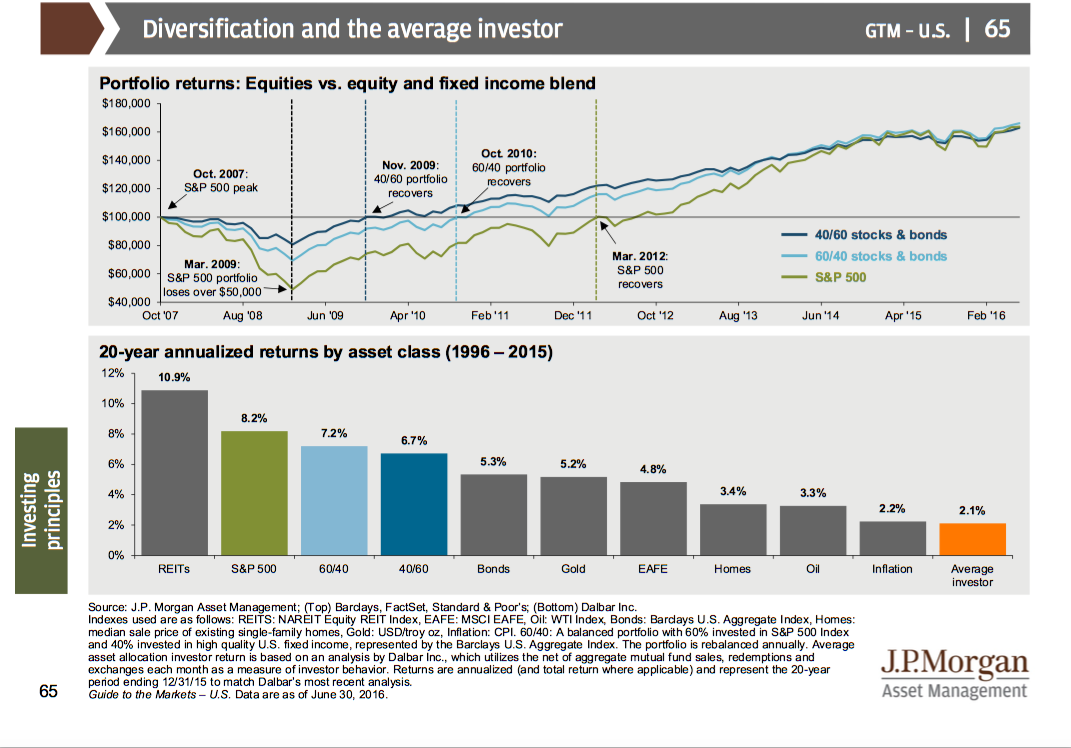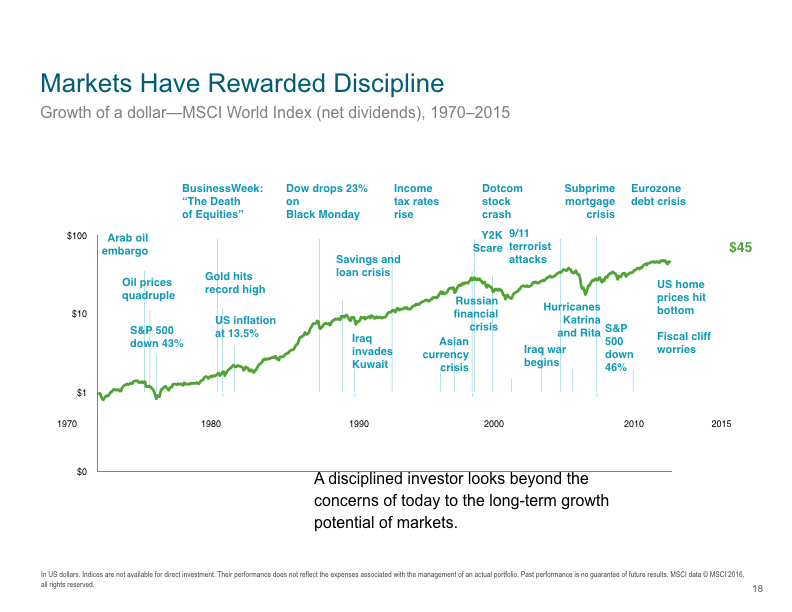11/9/2016 @ 12:03 AM
It appears Donald Trump is on his way to the White House. It may not be official by the time you read this in the morning; due to how close the race is, I anticipate requests for recounts, which will delay the conclusion to the 2016 Presidential election. But, while we may be waiting for the final recount, the stock markets are not waiting to react. And it isn’t pretty. As I sit in my PJs writing this, the US markets are set to open down more than 5%. Ugh! Depending on how you voted, you may be waking up to a double whammy…a loss for your candidate and a pissed off stock market. BUT, before your emotions overtake you and you call your advisor, or worse take action yourself, to sell your investment, take a deep breath…
As you take your breath, I want you to revisit your financial plan. I want you to revisit your investment policy statement, and the reasons why you invest in stocks and bonds. Have anything changed overnight due to the outcome of the election? Are you now retiring sooner than you had planned? Do you all of a sudden need access to your funds? Do you no longer plan on being in retirement for 30+ years?
If the answer to these questions is “No”, selling your long term investments in a panic is probably not the answer. The media is going to paint doom and gloom. There will be plenty of market “experts” making bold prediction, and your fortitude to stick to your investment strategy will be tested– it won’t be pleasant, but allowing your emotions to lead to irrationally selling investments is not a part of your long term plan. Do yourself a favor, skip CNBC tomorrow, and don’t log into your account.
I’m not going to be the only person to mention the Brexit vote earlier this year, and I’m not suggesting the election is Brexit II (although there are a number of similarities). I’m also not suggesting a quick recovery like we saw this summer–it’s not out of the question, though. But revisiting the Brexit vote does remind us that sometimes markets get it wrong. Sometimes markets sell off in a bigly manner (sorry, I couldn’t resist). Reacting to the Brexit vote in the days following led to losses that would have been recouped within a week if investors had stayed put, but investors often cause more harm to their portfolios by reacting to events by selling and trying to time their reinvestments. Don’t believe me, take a look at this chart:

See that orange bar, that’s the average investor’s return over a 20 year period. It is significantly less than a variety of diversified portfolios due to bad investor behavior (i.e. selling in a panic in reaction to an unforeseen event). Don’t fall into the orange!
If you have been investing for more than a year, this is not your first market spooking event. Take a look at the chart below, and think back to the concern you felt when these events were happening. Then remember how you stuck to your plan, and how you most likely recovered and maintained progress toward your long term goals. In the financial services industry we always make sure our clients and investors are aware that past performance does not indicate future performance. However, the markets and diversified portfolios have recovered in the past, and I have confidence that although history may not repeat itself, it will continue to rhyme.

Finally, I leave a couple of other posts by advisors that I hold in high regard, not because they preach a similar message, but because they are always looking out for their clients.
James Osborne, Bason Asset Management: Now What?
Josh Brown, The Reformed Broker: Nothing Left To Say
Josh Brown, The Reformed Broker: The Week When Advice Mattered
Now that you’ve completed your deep breath, if you are still feeling nervous, call your financial advisor and have a conversation regarding your financial plan and investment strategy. If your financial advisor isn’t answering, I know someone willing to listen, click here if you need someone to talk to.
Disclaimer: Nothing on this blog should be considered advice, or recommendations. If you have questions pertaining your individual situation you should consult your financial advisor. For all of the disclaimers, please see my disclaimers page.



